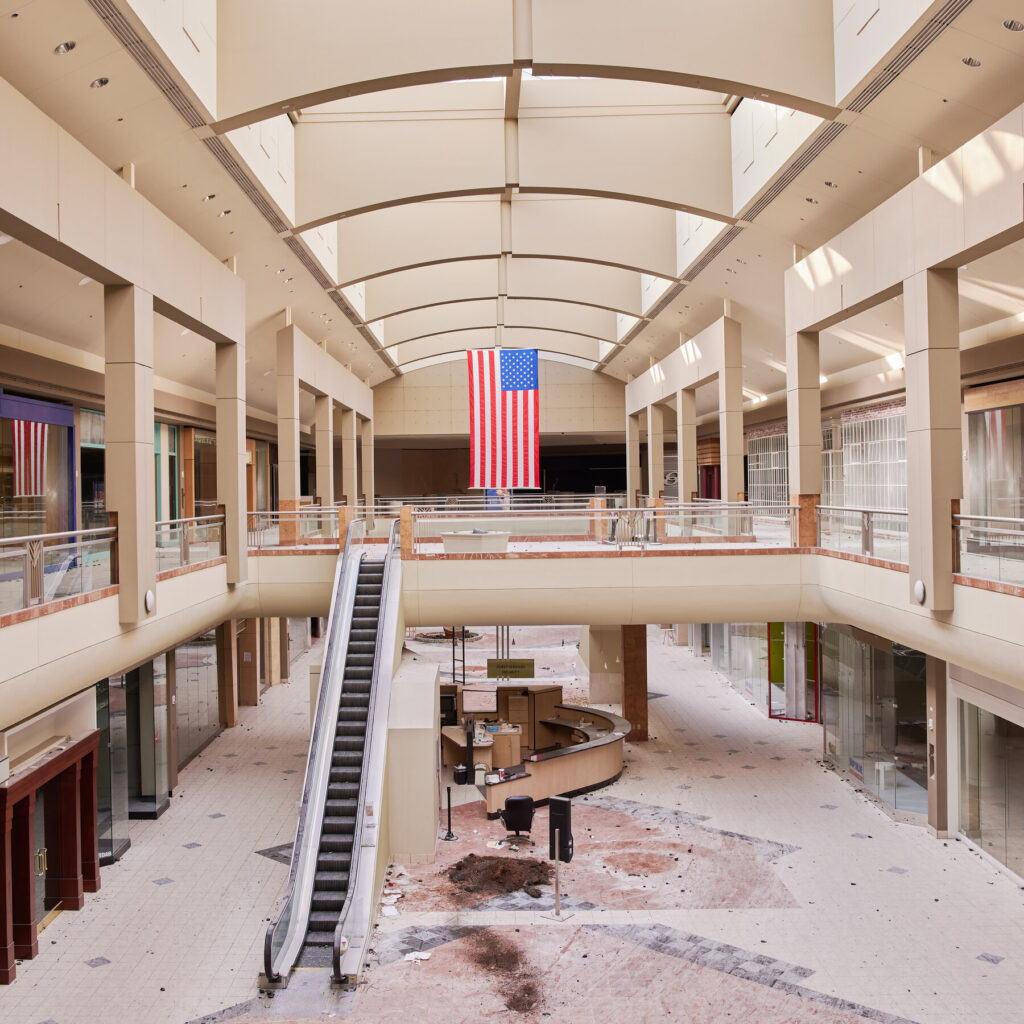Let’s Turn Abandoned Malls into Housing!

I fully support Rachel Cohen’s ideas here about turning our many abandoned malls into housing.
Amy Casciani, a longtime real estate developer whose corporation built housing across seven states, watched her local community struggle for years to add new homes.
Casciani grew up in upstate New York, in a suburban town outside Rochester. She eventually started a family and raised her children there, and in the early 1990s, a new mall opened up, bringing over 100 new stores including anchor retailers like Sibley’s, J.C. Penney, and Sears.
The mall was a proud boon to the town of Irondequoit, and a go-to spot for teenagers to hang out. “Hands down the most attractive shopping mall in the area,” an editorial for a newspaper serving Albany declared. “From its blue Legolike entrances and splashing fountain to its light-trimmed glass roof, columns and carousel, the mall exudes carnival gaiety.”
But in a few short years, retail patterns across the United States began to change. Mall foot traffic slowed and online shopping ticked up. Stores in the Irondequoit Mall began to close, and by 2016, the last major anchor, Sears, called it quits.
Casciani ached for her town, which not only was dealing with the eyesore of the abandoned mall but also lacked enough vacant land to develop desperately needed affordable housing. Her nonprofit development group, PathStone, embarked on a complex but meaningful project: They retrofitted the Sears department store into 73 rental apartments and built a new four-story multifamily building with 84 rental units on the adjacent parking lot.
PathStone connected the two buildings by a raised pedestrian walkway, and the Skyview Park Apartments now serves adults 55 and up who need subsidized housing. Half of the units are reserved for seniors at risk of homelessness, who can receive on-site supportive services.
“As affordable housing needs and costs keep going up and a shortage of available vacant land is growing, why not use what we already have?” Casciani said. “Why not creatively turn it around from being a blight on the community to an asset?”
Across the country, policymakers, researchers, and real estate developers are paying more attention to mall conversions like the one in Irondequoit as they grapple with their own shortage of affordable housing. While the Irondequoit Mall was a traditional mall, strip malls in particular offer some unique advantages, like big empty parking lots, that could make housing redevelopment an easier task.
A report last fall from Enterprise Community Partners, a national nonprofit focused on increasing housing supply, estimated that strip mall conversions could create more than 700,000 new homes across the United States.
There’s so much broken in our discussions about the housing issue, mostly which has to do with everyone having a single talking point that is far too simplistic. One thing that connects a lot of these issues is issue of space. When a person buys up 5 old New York apartments and turns them into his personal fiefdom, that’s a lot of housing that is taken off the market. When everyone wants 2,000 square feet of housing, that really limits what we can do. But also, we have often struggled to retrofit previous disastrous uses of space (and the endless decaying malls, both traditional and strip), is a great example of this.
Here in Rhode Island, where what was once a state of density, the postwar housing boom turned huge parts of what is today Warwick and Cranston into completely unplanned strip malls that are today are decrepit, empty, or just look like shit because they are 50 years old, were poorly planned in the first place, and are half or less full. And yet, for all of our very real housing problems, none of this so far as I can tell has been converted into housing. It’s right there!


